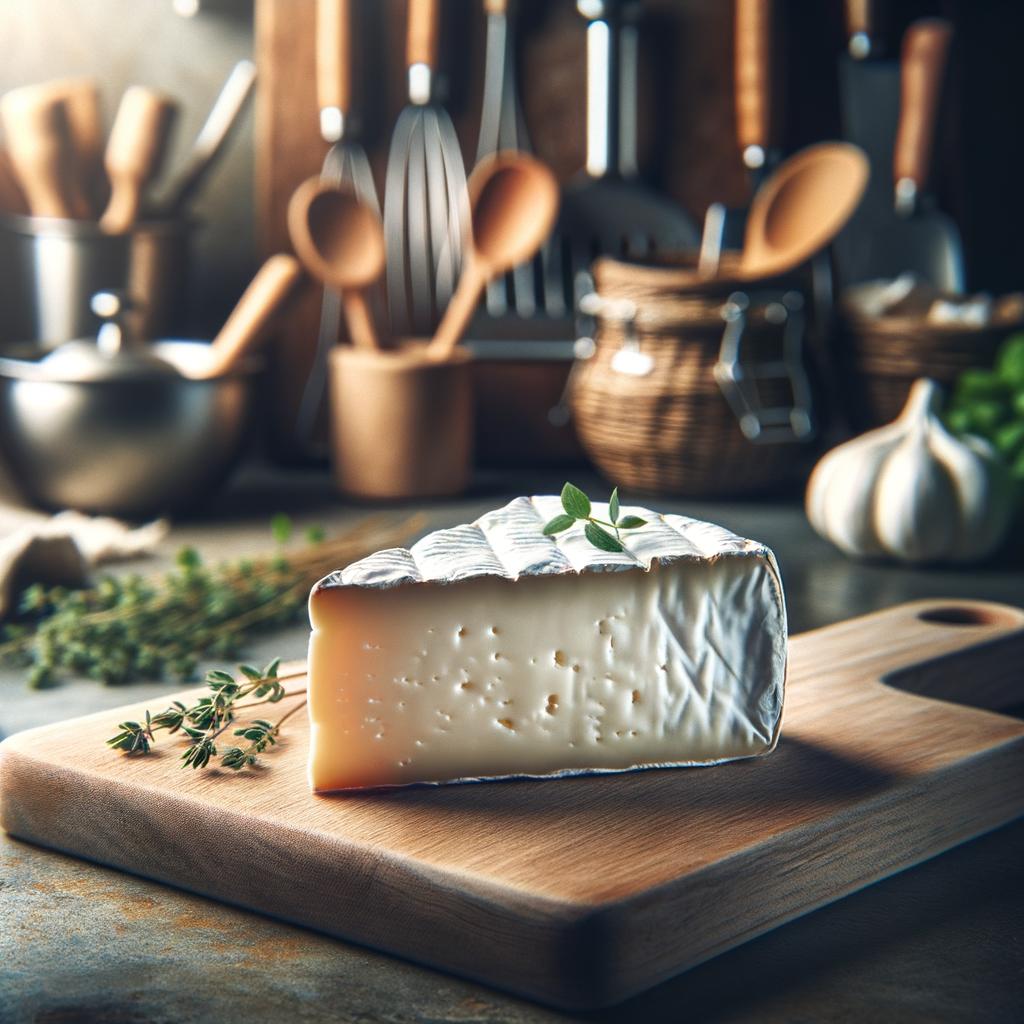Brie

Description
Brie, a soft, creamy, and dreamy cheese, hails from the French region of the same name. Its appearance is quite luscious, with a velvety, edible rind that encases a soft, buttery interior. The cheese is pale in color, akin to the hue of fresh cream. Its texture is smooth and rich, melting delightfully on the tongue. The flavor profile of Brie is complex yet subtle, with notes of rich cream, fresh mushrooms, and a hint of nuttiness. The unique characteristic of Brie that sets it apart from other soft cheeses is its bloomy rind, a result of being aged with specific molds, which contribute to its unique flavor and texture.
Primary Uses
Brie is a versatile ingredient in the culinary world. It is commonly used in French cuisine, often served at room temperature with bread and fruit. It is also a key component in many appetizers, salads, and sandwiches. Brie can be baked to create a warm, gooey dip or paired with fruits, nuts, and honey for a delectable dessert. Beyond its culinary uses, Brie holds a special place in French culture, often associated with sophistication and good living.
History
The history of Brie is as rich as its flavor. It dates back to the 8th century in the French region of Brie, where it was first created by monks. The cheese quickly gained popularity and was dubbed "The Cheese of Kings" after King Charlemagne tasted and fell in love with it. Over time, Brie's fame spread across Europe and eventually to the rest of the world. There's a romantic tale that French Emperor Napoleon III once declared a particular Brie from the town of Meaux as his favorite, leading to its enduring fame.
Nutritional Information
Brie is not only a treat for the palate but also offers nutritional benefits. It is a good source of protein, providing essential amino acids. It's rich in calcium, promoting bone health, and also provides a significant amount of vitamin B12, which supports brain function. Brie is higher in fat compared to some cheeses, but it's important to note that it's mostly heart-healthy monounsaturated fat. When compared to other soft cheeses, Brie tends to be lower in sodium and higher in vitamin B2. As with all foods, it's best enjoyed in moderation as part of a balanced diet.

